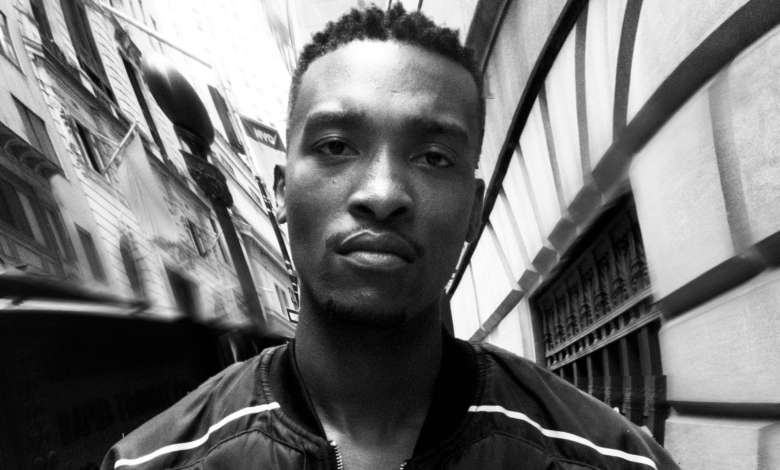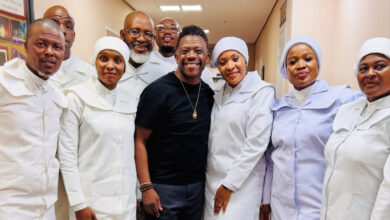Inspirational Interview With Gqom King DJ Lag

Interview With Gqom King DJ Lag. We recently had a sit down with the internationally acclaimed Gqom King, DJ Lag. Real names, Lwazi Asanda Gwala, the DJ and record producer is regarded as the pioneer of Gqom. This is a genre of electronic dance music that emerged in the early 2010s in Durban, South Africa.
He has collaborated with renowned artists such as Tierra Whack, Beyoncé, Moonchild Sanelly, Nija, Yemi Alade and Busiswa on a track called “My Power” on Beyoncé’s album, The Lion King: The Gift.

In this interview DJ Lag takes us through his amazing journey as a Gqom artist. From humble beginnings, to rubbing shoulders with the likes of Beyoncé, he is a perfect example of how hard work pays.
Check out the interview below, and draw inspiration whilst at it.
1. When you first started experimenting with Gqom over a decade ago, did you envision it gaining international acclaim as it has today?
I started circa 2009 when I first heard a track by Naked Boyz called “Hunters Gold”. Yes, I did see the genre becomes a global thing because I started being approached by internationals while I was still high school .
2. Reflecting on your early days in Durban, what were the key influences that shaped your unique sound?
Kwaito was the sound that I got hooked on from the start, I can say it’s the one sound the shaped everything.
3. Can you share a particularly memorable moment from your recent global tour that encapsulates your journey as an artist?
Playing at Bass Coast Festival (Canada) for the first time, first tour in MIAMI and playing an insane Boiler Room in London
4. How do you feel your music has evolved since your 2015 breakthrough at the G-Star Raw x Boiler Room Sessions in Johannesburg?
It has evolved a lot because since then I’ve travelled a lot, got to hear a lot of different sounds from different countries. That initial experience has set the course that enabled me to develop what I can compose now.
5. As a genre, gqom is deeply rooted in South African culture. What do you think makes it resonate so well with international audiences?
It because of our approach, Gqom music reflects vibe, a lifestyle and has a combination of high pitch and lots of bass, somehow that has a lot of joy within and represents a core South African experience that is just captures the imagination and bodies abroad. 6. Working with superstars like Beyoncé must have been extraordinary. Can you describe what this experience taught you about music and collaboration? It provided with me a lot of growth in terms of me being an artist and sharpened my composition and production skills. It also gave me the kind of confidence where, you know, I can take what I do and work with a homie from the hood or Beyonce, it was inspiring,
7. Your album ‘Meeting with the King’ merges gqom with Amapiano, Afro House, and Afro Tech. What inspires you to blend these genres?
Those are the sounds that I like that I even listen to on a daily basis, it just felt natural.
8. Your music videos are as impactful as your music. How important is visual storytelling to you, and what message do you aim to convey through your videos?
I always try to make sure that my music goes hand in hand with the visual vision I see in my mind, and I never wanted to portray a life I don’t live on visuals.
9. What advice would you give to young South African artists aspiring to make a mark in the music industry?
If you are an upcoming artist my advice to you is that is to always believe you are halfway there, and always strive to see what’s necessary to take it a step forward to reach your goals.
10. Being included in DJ Mag’s 100 of the World’s Best DJs is a significant achievement. How does it feel to receive such global recognition? It feels overwhelming I just never thought I would reach such level in my life, and I truly appreciate it.
11. How has your hometown of Clermont influenced your identity and success as an artist?
Clermont is the pillar of my success; I feel like everything stemmed from there.
12. As a sonic explorer, how do you maintain the balance between staying true to your roots and experimenting with new sounds?
In every new genre that I explore I make sure I incorporate the Gqom sound in it, to be honest it’s almost like I can’t help it but having love to these other sounds, it comes naturally.
13. Can you walk us through your creative process working on ‘Hade Boss’ with Mr Nation Thingz.
I started experimenting with this kind of style during 2020, my aim was to have the whole SA to dance to one genre, not to have a Gqom and Amapiano war, so I called up K.C Driller who is Amapiano producer and my neighbour. We worked on this new style mixing both genres and came up with the Hade Boss beat and sent it to Mr Nation, he did his thing, and the rest is history.
14. Where do you see the future of gqom heading, both in South Africa and on the global stage?
It’s rooted in a tribal rhythm that keeps evolving and finding its way to people’s hearts and feet, and with these newborn genre spins we come up with, it’s here to stay and take over.
15. With your rapid rise to fame and a hectic touring schedule, how do you stay grounded and connected to what matters most to you?
I know where I come from and I value where I come from, so I try by all means to push to be better as an individual and represent no matter where I go.




